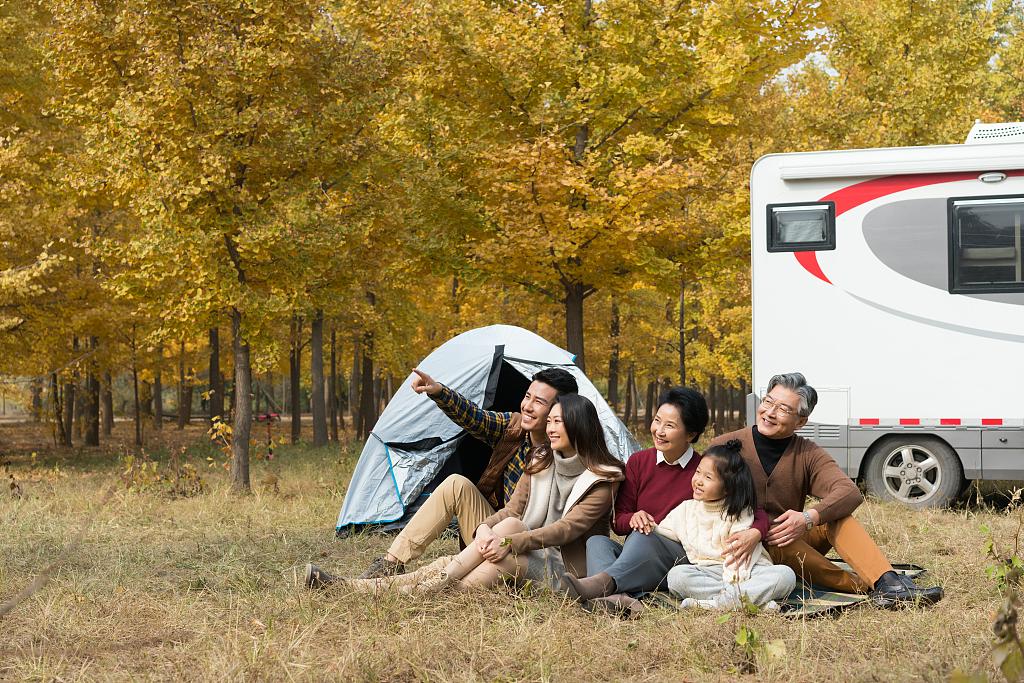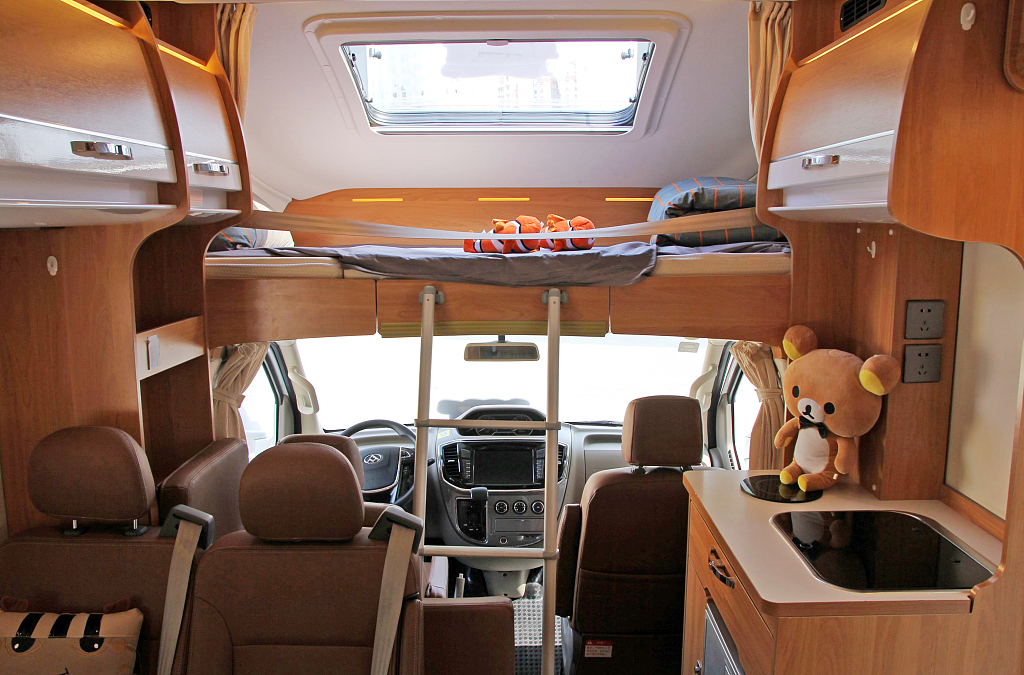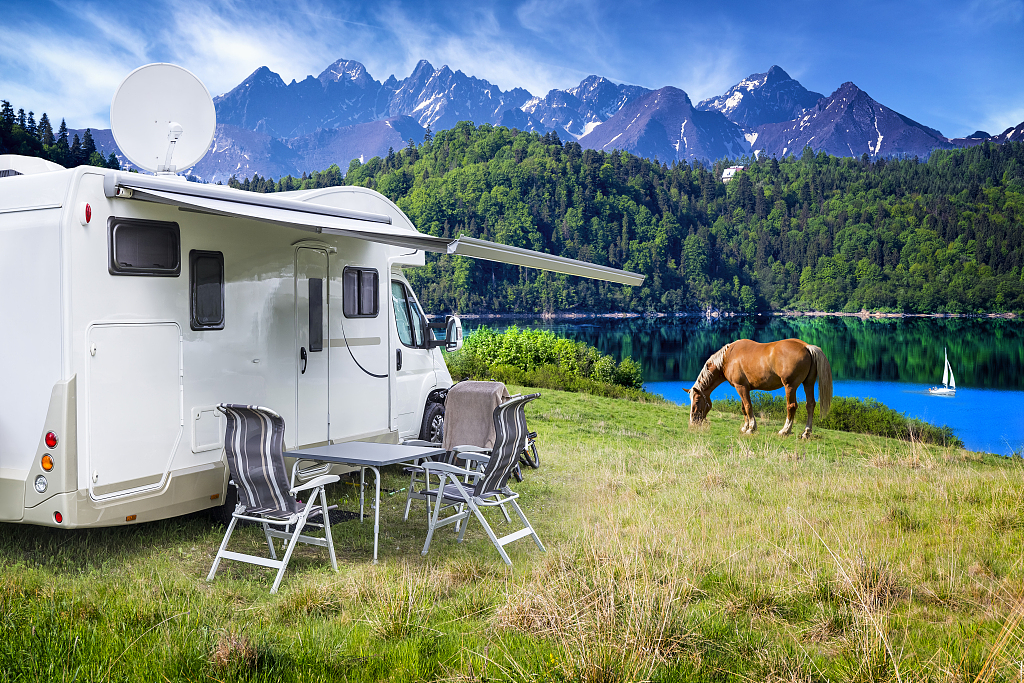01:15

When it comes to travel, the searches of "where to spend the holiday" have now been replaced by the question of "to go or not to go" as the novel coronavirus swept the globe that has so far infected over 12 million people worldwide, killing 550,000 and more.
China's months-long battle against the epidemic has brought about a positive outcome with businesses across the country already seeing overall resumptions. Yet, the decimated tourism industry wasn't able to recover to the previous level within a short period of time. On one hand, people have a pent-up craving to go out and travel, but on the other, virus fears still linger.
In the post-pandemic era, traveling might never be the same as before. Surely, people's travel considerations and preferences will shift, and safety has been brought to the forefront.
As more travelers prefer remote destinations and more isolated adventures to minimize the risk of exposure to the virus, traveling on wheels, especially recreational vehicles (RV), are seeing a surge in demand among Chinese tourists.

The COVID-19 pandemic has boosted the demand in RV trips in China. /VCG
The COVID-19 pandemic has boosted the demand in RV trips in China. /VCG
During the past May Day holiday (May 1-5), when the COVID-19 epidemic was basically curbed in China, the camping sites in Beijing's suburban areas gained a growing amount of interest. On China's online travel platform Qunar, two-day-and-one-night RV trips proved to be a sought-after option for many.
Data from Qunar showed that bookings for domestic RV-based travel products in the month of May jumped 2.7 times compared to April, with people from the cities of Chengdu, Chongqing, Kunming and Hangzhong among the RV trip-enthusiasts.
On Ctrip, another online travel agency, the number of orders for RV tours during the May Day holiday increased by 600 percent compared with that of the Qingming Festival holiday in early April.
"I used to travel in RVs, and people I know who were totally uninterested in such travel are now asking me: Where can I rent an RV? Do you know how I can get a discount on buying an RV?" said Chen Hanbin, one of China's key influencers in the outdoor travel sector, adding that "many people are leaning towards camping or RV travel, especially those with kids."
Read more: Chinese tourists turn to outdoor, eco-friendly trips

An RV typically includes a kitchen, a bathroom, and one or more sleeping facilities. /VCG
An RV typically includes a kitchen, a bathroom, and one or more sleeping facilities. /VCG
By offering a comfortable cottage on wheels, RV trips meet consumers' needs for a more private form of travel. The combination of transportation, dining and accommodation creates an all-in-one travel experience, perfect to avoid contact with others and thus reduce the chances of contracting the virus.
Liao Chuchu, co-founder of an online RV renting platform Xiaoju, said "The mix of RVs and popular tourist routes can open a new domestic tourism market." On its platform, RV rental users are more concentrated between the age of 21 and 39, mainly for family travel, while the post-60s and post-70s are more inclined to purchase RVs.

More Chinese families are in favor of RV trips. /VCG
More Chinese families are in favor of RV trips. /VCG
In many people's minds, RV trips used to be labeled as "luxury" and "big budget," but now, they have become more affordable. The rental price of an RV that can accommodate four to six people generally ranges from 800 to 3,000 yuan (114-427 U.S. dollars) per day, and a security deposit is needed for reservations.
Some industry experts said China has been developing the RV business for two decades. However, it is still nascent in China and faces multiple challenges, such as the number of camping sites and the construction of infrastructure.
(Cover image designed by Qu Bo)